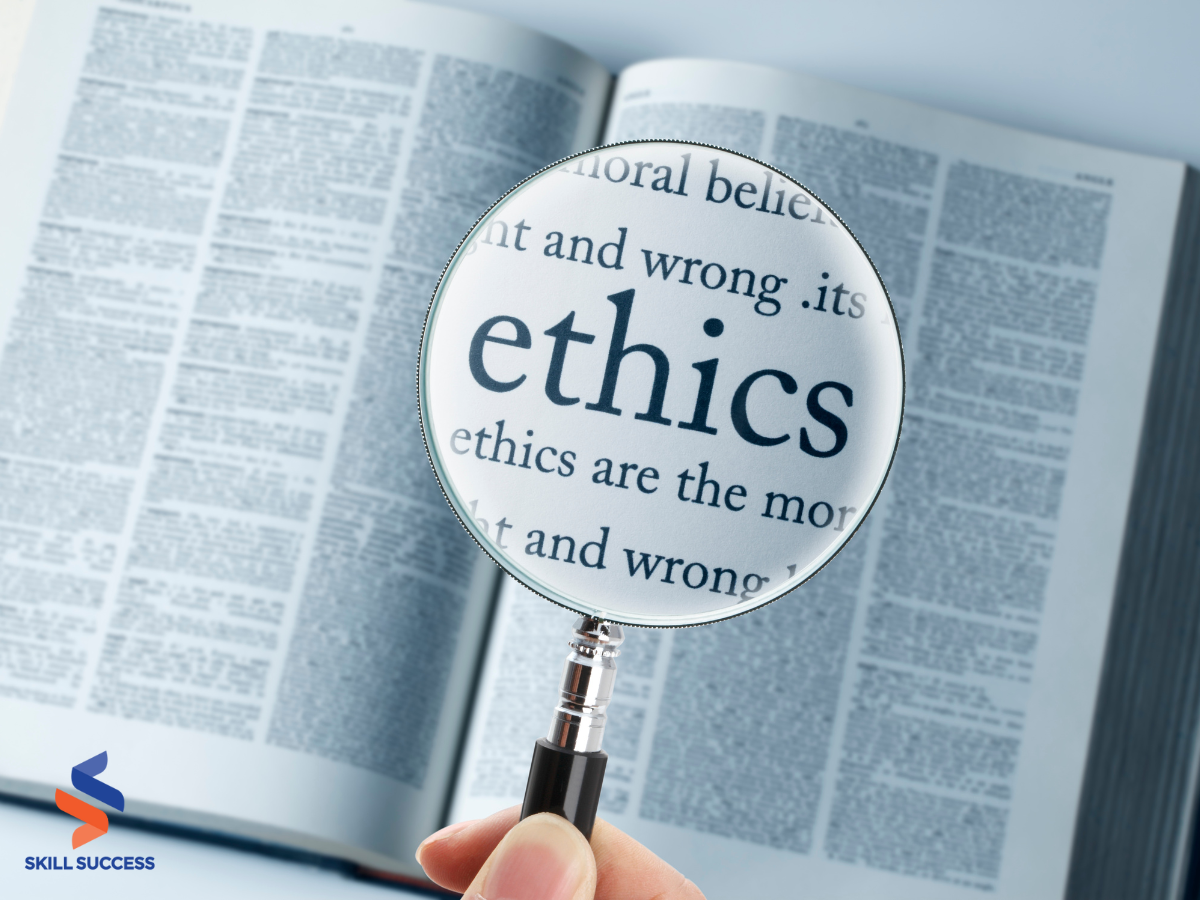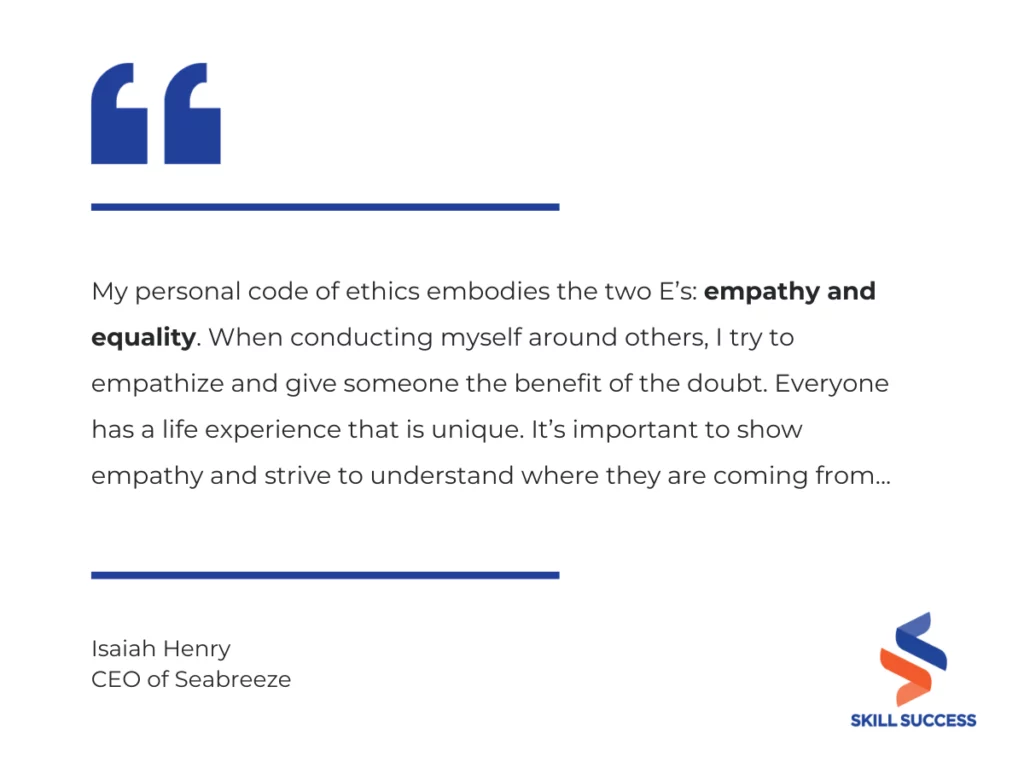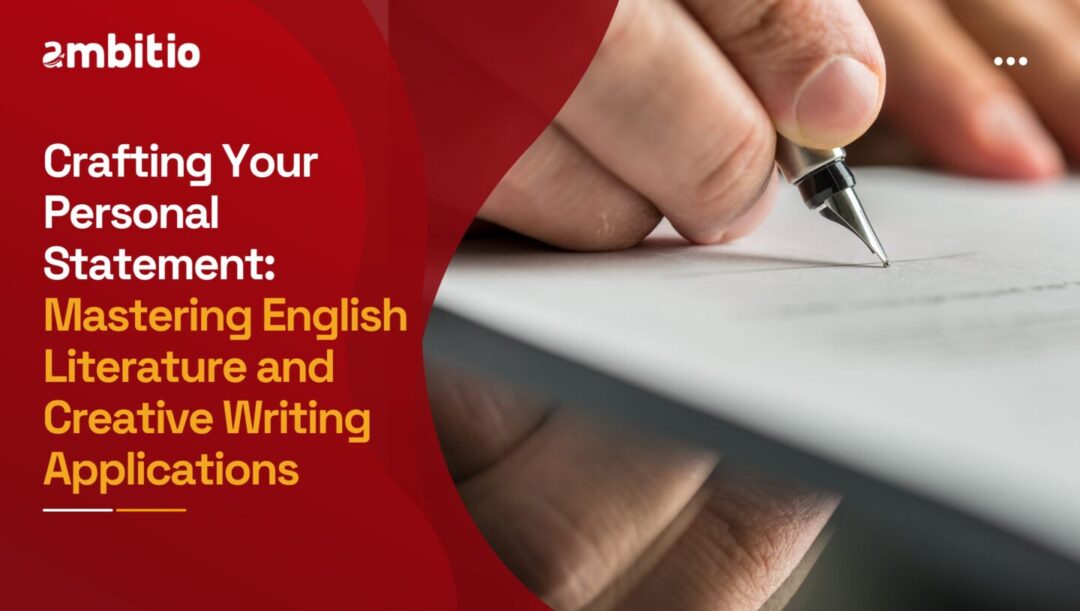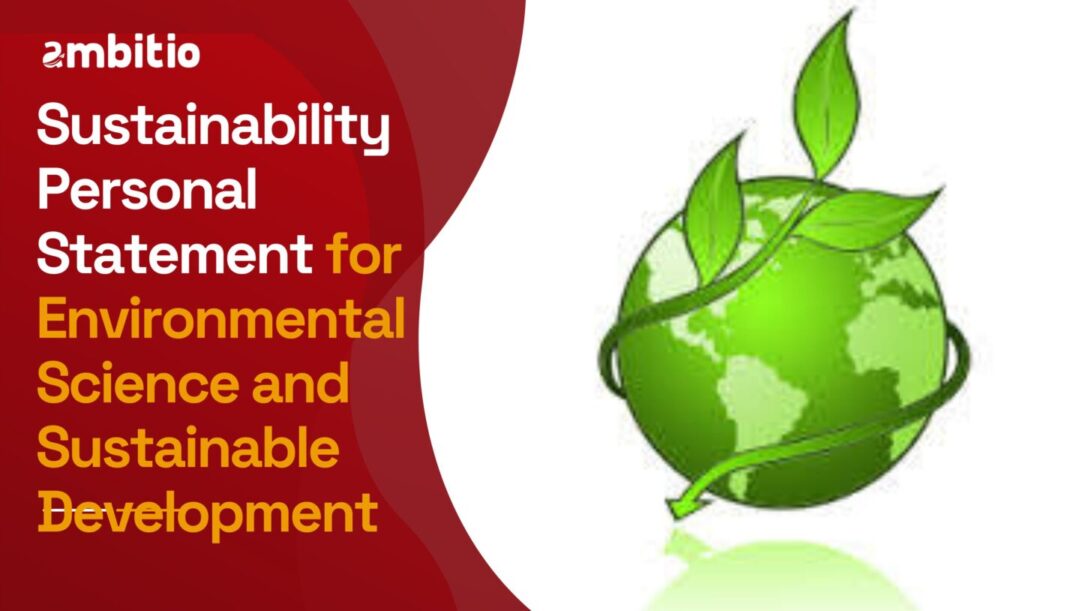

How to Write Your Personal Code of Ethics + Examples
- POSTED ON June 1, 2024
- by Marcjean Yutuc
In a world where external codes of ethics often shape our behavior, it’s essential to remember that your personal values are equally significant. While your workplace may provide a code of ethics outlining professional conduct and expectations, crafting your own personal code of ethics empowers you to align your actions with your deeply held beliefs and ideals.
This blog will delve into the importance of developing a personal code of ethics, offering insights into how it can enrich your life and decision-making process. As you read further, you’ll discover inspiring personal code of ethics examples that will help you envision and craft your unique ethical framework.
Join us on this enlightening journey as we explore the profound impact of creating a personal code of ethics in the realm of personal development and ethical living.
What is a code of ethics?
To understand the essence of a personal code of ethics, let us first uncover what “code of ethics” means. A code of ethics is usually a set of principles that a company, organization, or business follows. Its primary purpose is to guide the organization members on how to properly conduct business that is in line with the company values. Usually, these values include integrity, honesty, and professionalism.
Otherwise known as the “ethical code,” an organization’s code of ethics is an umbrella term that covers areas concerning professional conduct. These areas include business ethics, code of conduct for employees, and code of professional practice. Simply put, it ensures that everyone within the organization follows a standard when it comes to ethical behavior in their everyday work.
An organization’s code of ethics may differ greatly from another organization, but in general, they all are similar in the sense that they govern members to do what is right. They are usually under the basis of what is generally accepted by society as right or wrong.
What is the importance of having a personal code of ethics?
If you’re still not convinced that you need a personal code of ethics, below are some key reasons why having one is essential.
It gives you a foundation to help you make big decisions
A lot of people struggle with the decision-making process. If you look towards more successful people and influential leaders in your organization or community, you will find that they have some personal code of ethics that guides them.
A personal code of ethics is particularly important if you are in a position that requires you to make decisions frequently, such as if you are a leader or manager. It will serve as the foundation upon which all of your decisions can stand. You will feel a lot more determined and stand by your decisions with conviction if you know that they are grounded upon your own belief system.
Read more: Decision-Making Tips for Business
It functions as a standard for good behavior
In connection to making good decisions, having a personal code of ethics allows you to make good choices that align with good behavior. Usually, a personal code of ethics is morally aligned to help a person act not only in his own best interest but also in the community or surroundings around him.
It allows you to lead others effectively
A good leader has to be concise, quick to think, empathetic, and have a good moral compass. A personal code of ethics helps you become the most effective leader you could possibly be for the people around you. You don’t necessarily need to be a manager to practice leadership skills . Inspiring the people around you and even self-governance are equally just as important.
It instills a sense of trust in people around you
If you are an effective and moral leader, it will be easier for people around to trust you. Moreover, people usually trust those whom they have similar values with, or whose values they can relate to. If people are aware of your personal code of ethics, they will know exactly how to approach you and what things you may or may not appreciate. This predictability further fosters a sense of trust.
It is a source of self-motivation
Since a personal code of ethics allows you to steward yourself, you will also find that you can motivate yourself. You will find it easier to start projects and finish them on time since you have a sense of accountability towards yourself through your personal code of ethics.
Learn more: What Causes Lack of Self-Awareness

How to write a personal code of ethics
If you agree that having a personal code of ethics is a good idea, here are some pointers to consider when drafting your own code of ethics to serve as your guiding principles:
Why are you writing a personal code of ethics?
The first thing you need to uncover before you even begin is your motivation for writing a personal code of ethics. What do you think is its purpose for you? How do you plan to use it, and why do you think you need one?
Knowing the reason why you are writing a code of ethics for yourself will help you determine where to start as you write it. It will also help you tailor your code of ethics to achieve a specific goal you want to reach or a personal challenge that you want to overcome, similar to that of a personal mission statement.
One way you can determine the purpose of your personal code is through mindfulness. Learn more about how you can use spiritual mindfulness to experience personal growth through this course:
Spiritual Mindfulness: A Powerful Course For Personal Growth
This course helps you build a strong connection with yourself, so you can gain clarity and come to know your true purpose in life. Taught by an experienced spirituality expert, it cuts through the noise of complexity and is delivered in a way that’s easy to understand even if it’s your first time taking a personal development course online.
What are your top personal traits?
How would you describe yourself? While this question may seem like something you would only hear during a job interview , it is important to ask when trying to determine which values are on the top of your list as you write your code of ethics.
To do this, make a list of the traits or characteristics that strongly define who you are. Examples are kindness, honesty, passion for excellence, prudence, hard work, diligence, and respect for others. Apart from introspection, you may also ask people around you to describe you or see if they agree with your own list of characteristics.
Knowing the personal traits you possess will allow you to create a more honest personal code of ethics that you can stick to with ease because it reflects values that are already inherent within you.
Describe your relationship with others
Another thing you have to consider before crafting your code of ethics is the nature, state, and quality of your personal relationships. Make an assessment of how you relate to those around you, at work or at home.
Coming to terms with the state of your relationships allows you to see areas where you may want to improve. Would you want to communicate better with the people around you? Do you think you should treat others with more kindness? How would you want those closest to you to remember you?
Write a set of statements that you would like to follow
This is the part where you begin to draft your personal code of ethics. Based on the traits that you possess and the relationships you currently have, what characteristics would you like to move forward?
It would help if your statements are to the point and realistic so that you are more likely to follow through.
Set clear guidelines for each statement
A statement alone may not be enough to help you decide whether or not to pursue an activity or behavior. There are a lot of possible grey areas that may surround a specific code. That is why it is important to set clear guidelines that explain each statement in more detail.

Professional versus personal code of ethics
The main difference between a personal and a professional code of ethics is that the former relates to the person’s values in life, whereas the latter relates to the person’s values in the workplace.
For example, a personal code of ethics will let you tell the truth because you believe in honesty and integrity. On the other hand, a professional code of ethics demands that you tell the truth because it is specified in the code of conduct that lying is a misdemeanor in the workplace. Another example is respect. While a personal code dictates that you respect older people, people in service, and the authorities, a professional code dictates that you respect your boss and higher management.
That means that a personal code of ethics encompasses a person’s entire personal life and personal choices while a professional code of ethics is purely related to the rules found within your job.
Incorporating a personal code of ethics into your daily routine using tools like the Notion app can help you stay aligned with your values and maintain consistent ethical standards in your personal and professional life
Personal code of ethics examples from thought leaders
My personal code of ethics is based on a few simple values that are important to me. First and foremost, I value honesty and integrity above all else; being honest and having integrity is the cornerstone of living a good life. I also appreciate compassion, kindness, and respect; I believe that we should all treat others with compassion, kindness, and respect, regardless of who they are or what they have done. Finally, I believe in continuous learning and improvement; it is essential never to stop learning and growing as a person. We should always be striving to improve ourselves and the world around us.
Randy VanderVaate | CEO and Founder, Funeral Funds America
We all have beliefs, and we use those in our personal and career life. As a founder, I have various codes of ethics, but I stick with the influential one, “respect doesn’t require a higher social level.” I always devote myself to this to bring understanding and stop society’s discrimination against those trying to live honorably, even the means of minimum wage income. Let’s be open that money and position are not the reason for getting the courtesy we deserve.
April Maccario | Founder, Ask April
A personal code of ethics refers to our values and beliefs that guide our decisions and actions. As a founder, part of my personal code of ethics is to treat others the way I want to get treated. I believe that we cannot demand from others what we cannot give ourselves. So, if we want other people to show us kindness, respect, or other good things, then this is also how we should treat others.
Sonya Schwartz | Founder, Her Norm
My personal statement is inspired by my favorite poem “Desiderata” by Max Ehrmann: I will always speak my truth clearly and calmly and prioritize listening to others. There is always someone better or worse than me, so I will not compare myself with others. I will be doing my work with my heart, and besides a healthy discipline, I will be gentle with myself. There is only one life, so I should live it the best I can. I will be cheerful. I will strive for happiness.
Rafal Mlodzki | CEO, Passport Photo Online
In our lives having high ethics is essential. I have a personal code of ethics that I consider in both my personal life and career. In every part of my daily existence, I constantly maintain my integrity. I understand that integrity is cliche, but believe me it is something that makes a big difference. I constantly exercise integrity because good deeds are rewarded at the end of the day.
Darryl Higgins | Founder, Athlete Desk
For me, a code of ethics is a foundation for effective communication in both personal and professional life. By adhering to the values and principles outlined in the corporate code of ethics, I can better understand the expectations of the people I work with and foster positive relationships with them. A solid code of ethics serves as a framework for making ethical decisions, and that’s where success comes from!
Greg Larnell | CEO, Custom Writings

Recommended Courses for Personal Growth
1. be happier with positive psychology.

This course is designed to provide you with practical, research-based strategies to boost your happiness and well-being. By leveraging the findings from peer-reviewed psychology research, it offers actionable insights that can lead to a more fulfilling and satisfying life.
What sets this course apart is its foundation in rigorous scientific research. Unlike many self-help courses that rely on anecdotal advice, this course distills complex psychological studies into simple, effective life hacks. You’ll learn evidence-based techniques that are proven to enhance happiness.
The research in this field is not only compelling but also highly practical. I believe this course can genuinely improve your life by providing tools grounded in real science.
Who is this course for?
This course is perfect for anyone interested in improving their happiness and well-being. If you’re curious about the science behind happiness and eager to apply these insights to your daily life, this course is for you.
2. Understanding Empathy

This course offers practical, research-based techniques to enhance empathy and interpersonal skills, accessible to everyone without prior knowledge.
Led by an experienced emotional intelligence coach, this course stands out for its actionable, real-world strategies, going beyond theory to provide immediate, practical support.
I believe empathy is crucial for success. This course demystifies empathy, offering tools to improve understanding and connection with others.
Who is this course for?
This course is perfect for anyone looking to develop their empathy and interpersonal skills, whether for professional growth or personal relationships.
3. Maximize Life With Growth Mindset

This course provides essential insights into developing a growth mindset, focusing on personal growth and mental health. It equips you with practical tools to achieve your goals faster and live a more fulfilling life.
The course stands out by addressing both mental and physical aspects of growth, offering a comprehensive approach to reducing stress and enhancing well-being. It emphasizes the importance of awareness and mental health investment.
As someone committed to personal development, I believe this course is transformative. It helps you break free from hidden barriers and cultivates a growth mindset, paving the way for significant success and well-being.
This course is ideal for business professionals, parents, and students who want to maximize their potential, improve their mental health, and achieve personal growth in every aspect of life.
Key Takeaways
Writing your personal code of ethics is a journey of self-discovery. It can be a challenging process, but it is also an incredibly rewarding one. By taking the time to reflect on your core values and beliefs, you can create a roadmap for living a more authentic and fulfilling life.
But the journey of personal development doesn’t end here. If you’re eager to further enhance your skills and explore a wide range of personal development resources, subscribe to Skill Success All Access Pass . With this subscription, you gain access to our extensive library of courses, including an array of personal development courses that can empower you to become the best version of yourself.
Subscribe now and continue your pursuit of personal development excellence!
Editor’s note: This post was originally published in November 2023. It has been updated for freshness and accuracy.

Marcjean Yutuc
Browse all categories, related posts, best courses for entrepreneurs 2025 [free], how to start a web design agency from scratch: a step-by-step guide, personal growth in 10 minutes, improve your soft skills in just 10 minutes, boost your leadership skills in 10 minutes.
Be the first to get the newest articles!
Get free articles weekly and put your skills on turbo mode. Subscribe with your email today.
Look out for useful articles and resources delivered straight to your inbox.
Looking for a solution to discover, change, or advance your career?
Get all access pass for only $15/month and unlock 4,000+ online video courses today..
SKILLSUCCESS.com 2024 All rights reserved
Online courses.
Software Tutorials
Personal Development
Career Development
Become an Instructor
Support FAQs
Create An Account
All Access Pass
Terms of Use
Privacy Policy
SKILLSUCCESS.com 2022 All rights reserved
Join our newsletter and get your first course free!
Congratulations! You get one free course of your choice. Please check your email now for the redemption code.
Subscribe For Success!
Get fresh content every week to upgrade your skills today!


Guidance from our top admission experts — for free!

- Admit Finder
Discover Past Admits, Gauge Your Chances!
- Shortlist Builder
Personalized University Picks, Just a Click Away.
- Course Finder
Navigate Global Courses Tailored for You
- Scholarship Finder
Unlock Funding Opportunities Worldwide.

Get tailored study abroad advice.

Sign in for exclusive content!

Planning to study abroad?

Build your target shortlist and see your odds of getting into top schools with Ambitio's AI shortlist builder!

Heading Out Already?
Our Ivy League mentors and top admission experts can help with personalized tips to get you into your dream school
7 minutes read
Crafting a Personal Ethics Statement Essay: A Comprehensive Guide
Dirghayu Kaushik
15 August 2024

Worried about the cost of Studying Abroad?
Sign up to access 25 game-changing scholarships that could cover your costs.
- Creating a Personal Ethics Statement Essay
A personal ethics statement is a declaration of your beliefs and values. It serves as a mirror reflecting your personal view of ethics, morals, and the decisions you make daily.
Life experiences, religious beliefs, and family influence all contribute to the formation of your personal ethics. This guide will walk you through the necessary steps to craft an effective personal ethics statement essay and discuss the importance of personal and professional ethics in your life.
Stuck on How to Pick Your Ideal College?
Sign up to access your tailored shortlist and simplify finding your ideal college.
- Components of a Personal Ethics Statement
A personal ethics statement typically encompasses the following components:
- Introduction : This section should introduce your personal ethics, ethical principles, and the values you hold dear. Explain how your upbringing, life experiences, and the people in your life have contributed to your current belief system.
- Body : This section is the heart of your personal ethics essay. Elaborate on your values and ethical issues that are most important to you. Discuss how these ethics and morals guide your decisions and actions in every aspect of your life, both personal and professional.
- Conclusion : Summarize your personal ethics statement, emphasizing the key points and explaining how your ethics will play a role in your future decisions, professional growth, and relationships.
Tips for Crafting Your Personal Ethics Statement Essay
While writing your personal ethics statement essay, keep in mind the following tips:
- Be Authentic : Your ethics statement should reflect your true beliefs and values. Avoid listing ethics you feel you “should” have, and instead focus on the ethical guidelines and moral principles that genuinely resonate with you.
- Be Specific : Provide examples of situations where your ethics have guided your decisions or helped you distinguish between right and wrong. These examples can be from your personal or professional life.
- Reflect : Take time to reflect on your experiences and how they have shaped your ethical code. Consider how your ethics may evolve in the future and the impact they may have on your personal and professional relationships.
Importance of Personal and Professional Ethics
Ethics are fundamental to every aspect of your life. They guide your decisions and actions, affect your relationships with others, and influence your self-respect.
Personal ethics are formed through family influence, religious beliefs, and life experiences. Professional ethics, on the other hand, are the ethical standards and code of conduct that you adhere to in a professional setting. Both personal and professional ethics are crucial for maintaining ethical behavior and a clear understanding of right and wrong.
Interrelation between Personal and Professional Ethics
The interrelation between personal and professional ethics is significant in shaping an individual’s character and conduct. Here are some insightful points:
- Values Alignment: Personal ethics often influence professional ethics. When personal values align with organizational values, it fosters a sense of purpose and commitment in one’s work.
- Trustworthiness: Consistency between personal and professional ethics builds trust. Colleagues and clients are more likely to trust individuals who demonstrate integrity in both spheres.
- Decision-Making: Personal ethics serve as a foundation for ethical decision-making at work. Moral principles developed in personal life guide choices in professional dilemmas.
- Reputation: Personal behavior can impact professional reputation. Unethical actions in personal life can tarnish one’s professional image and credibility.
- Stress Reduction: Harmonizing personal and professional ethics reduces cognitive dissonance and stress. When actions align with beliefs, it enhances well-being.
- Leadership Example: Leaders who exemplify strong personal ethics inspire ethical behavior throughout their organizations, fostering a culture of integrity.
- Conflict Resolution: An individual’s personal ethics can aid in resolving ethical conflicts at work. It provides a framework for addressing disagreements and finding solutions.
- Long-Term Success: Individuals with a strong ethical foundation tend to have more sustainable professional careers. Ethical lapses can lead to setbacks and even legal issues.
- Adaptability: Personal ethics can evolve over time, influencing how one adapts to changing professional environments and ethical standards.
- Legal Implications: Personal ethical breaches can have legal repercussions in professional settings, emphasizing the need for alignment.
In essence, personal and professional ethics are intertwined, and recognizing this connection is crucial for ethical development and success in both personal and professional life.
The Role of Family and Religion in Shaping Personal Ethics
Family and religious beliefs play a significant role in shaping one’s personal ethics. From a young age, families impart values and morals, influencing one’s perception of right and wrong. Religious beliefs often provide a set of ethical guidelines and principles that individuals adhere to in their daily lives.
Family Influence
The family is often the first and most influential socializing agent in one’s life. Parents, siblings, and extended family members contribute to shaping one’s personal ethics in various ways:
- Teaching Values : From a young age, parents teach their children fundamental values such as honesty, kindness, and respect. These values form the foundation of a child’s personal ethics.
- Modeling Behavior : Children often mimic the behavior of their parents and other family members. If parents model ethical behavior, children are more likely to adopt similar ethical standards.
- Discussions and Debates : Family discussions about ethical issues, current events, or hypothetical scenarios can help children develop critical thinking skills and form their own opinions about what is right and wrong.
- Setting Expectations : Families often set expectations for behavior, which can influence a child’s sense of right and wrong. For example, a family that values hard work and perseverance may instill a strong work ethic in their children.
Religious Influence
Religion plays a crucial role in shaping personal ethics for many individuals. Religious teachings often provide a framework for understanding the world and making ethical decisions:
- Ethical Guidelines : Many religions have specific guidelines about what is considered right and wrong. For example, the Ten Commandments in Christianity provide a set of ethical guidelines for followers.
- Moral Stories : Religious texts often contain stories that illustrate moral lessons. These stories can help individuals understand and internalize ethical principles.
- Community Influence : Being part of a religious community can also influence one’s personal ethics. The shared beliefs and values of the community can reinforce one’s personal ethics.
- Spiritual Reflection : Religion often encourages self-reflection and mindfulness, which can help individuals gain a deeper understanding of their values and ethical principles.
Interplay between Family and Religion
Family and religion often intersect, and their influences on one’s personal ethics can be intertwined. For example, a family’s religious beliefs often influence the values they teach their children. Conversely, an individual’s personal ethics may influence their religious beliefs and practices.
It is important to reflect on how your family and religious beliefs have influenced your personal ethics and how they continue to guide your decisions and actions.
Understanding the role of family and religion in shaping your personal ethics can help you gain a deeper understanding of yourself and the values you hold dear.
Navigating Ethical Dilemmas with Your Personal Ethics
Ethical dilemmas often arise in both personal and professional settings. Having a clear understanding of your personal ethics can help you navigate these dilemmas and make decisions that align with your values and ethical principles. When faced with an ethical dilemma, consider the following:
- Identify the Dilemma : Clearly define the ethical dilemma you are facing. What are the conflicting values or interests at play?
- Consider the Options : Evaluate all possible options and the potential consequences of each. Consider how each option aligns with your personal ethics.
- Make a Decision : Based on your evaluation, make a decision that aligns with your personal ethics and is the most appropriate course of action.
- Reflect : After making a decision, take time to reflect on the outcome. Did it align with your personal ethics? Would you make the same decision again?
See how Successful Applications Look Like!
Access 350K+ profiles of students who got in. See what you can improve in your own application!
- Being a Role Model through Ethical Behavior
Being a role model means exhibiting ethical behavior in all aspects of your life. Your actions and decisions influence those around you, whether you realize it or not.
By adhering to your personal ethics and making decisions that reflect your values and ethical principles, you can inspire others to do the same. Consider the following tips to be a role model through ethical behavior:
- Lead by Example : Demonstrate ethical behavior in all your actions and decisions. Be consistent in your actions, whether in personal or professional settings.
- Be Accountable : Take responsibility for your actions and decisions. If you make a mistake, acknowledge it, and take steps to rectify it.
- Be Transparent : Be open and honest in your communication with others. Share your thought process and the reasons behind your decisions.
- Encourage Ethical Behavior : Encourage others to act ethically by acknowledging and rewarding ethical behavior.

Start Your University Applications with Ambitio Pro!
Get Ambitio Pro!
Begin your journey to top universities with Ambitio Pro. Our premium platform offers you tools and support needed to craft standout applications.
Unlock Advanced Features for a More Comprehensive Application Experience!

Start your Journey today
- Reflecting and Updating Your Personal Ethics Statement
Your personal ethics may evolve over time due to new experiences, changes in your belief system, or shifts in your perspective on ethical issues.
It is essential to periodically reflect on and update your personal ethics statement. Consider the following steps to reflect on and update your personal ethics statement:
- Reflect on Your Experiences : Take time to reflect on your experiences and how they have influenced your personal ethics. Have you encountered any ethical dilemmas that challenged your beliefs? Have your values or ethical principles evolved?
- Evaluate Your Current Ethics Statement : Review your current personal ethics statement. Does it still accurately reflect your values and ethical principles? Are there any areas that need updating or revising?
- Update Your Ethics Statement : Based on your reflection and evaluation, update your personal ethics statement to accurately reflect your current values and ethical principles.
- Seek Feedback : Share your updated personal ethics statement with a trusted friend, family member, or mentor. Seek feedback on whether your statement accurately reflects your values and ethical principles.
- Implement Your Updated Ethics Statement : Apply your updated personal ethics statement to your daily life and decision-making. Reflect on how your updated ethics influence your actions and decisions.
In conclusion, crafting a personal ethics statement essay is not only an exercise in self-awareness but also a guide that can profoundly influence your decisions and actions, both personally and professionally.
Your personal ethics are a reflection of your character and play a critical role in your interactions, your approach to ethical dilemmas, and your role as a model for others.
Therefore, it is crucial to take time to reflect on your values, consider the influence of family and religion, navigate ethical dilemmas, and continuously update your personal ethics statement.
Remember that your personal ethics are not set in stone; they may evolve and adapt as you grow and learn. Hence, revisiting and revising your personal ethics statement is an essential practice in your journey of self-development and professional growth.
What is a personal ethics statement?
A personal ethics statement is a declaration of your core values and ethical principles that guide your decisions and actions.
Why is a personal ethics statement important?
It helps you gain a clear understanding of your values and ethical guidelines, guiding your decisions and actions in both personal and professional settings.
How do I write a personal ethics statement essay?
Start by reflecting on your values, ethical principles, and life experiences that have shaped your beliefs. Then, organize your thoughts into an introduction, body, and conclusion, elaborating on your values and providing specific examples.
Can my personal ethics evolve over time?
Yes, your personal ethics may evolve due to new experiences, changes in your belief system, or shifts in your perspective on ethical issues. It is essential to periodically reflect on and update your personal ethics statement.
Spread the Word!
Share across your social media if you found it helpful

Table of Contents
- • Creating a Personal Ethics Statement Essay
- • Components of a Personal Ethics Statement
- • Being a Role Model through Ethical Behavior
- • Reflecting and Updating Your Personal Ethics Statement
- • Conclusion
Build your profile to get into top colleges
Phone Number
What level are you targetting
Almost there!
Just enter your OTP, and your planner will be on its way!
Code sent on
Resend OTP (30s)

Your Handbook Is Waiting on WhatsApp!
Please have a look, and always feel free to reach out for any detailed guidance
Click here to download
Meanwhile check out your dashboard to access various tools to help you in your study abroad journey

Related Blogs

Strategies for Writing an Effective Application Essay

Crafting Your Personal Statement: Mastering English Literature and Creative Writing Applications

Crafting an Impactful Sustainability Personal Statement for Environmental Science and Sustainable Development
Find your Dream school now⭐️
Welcome! Let's Land Your Dream Admit.
Let us make sure you get into the best!
- 2024 Winter
- 2024 Spring
- 2024 Summer
Enter verification code
Code was sent to
- Our Experts
Connect with us on our social media

IMAGES
VIDEO